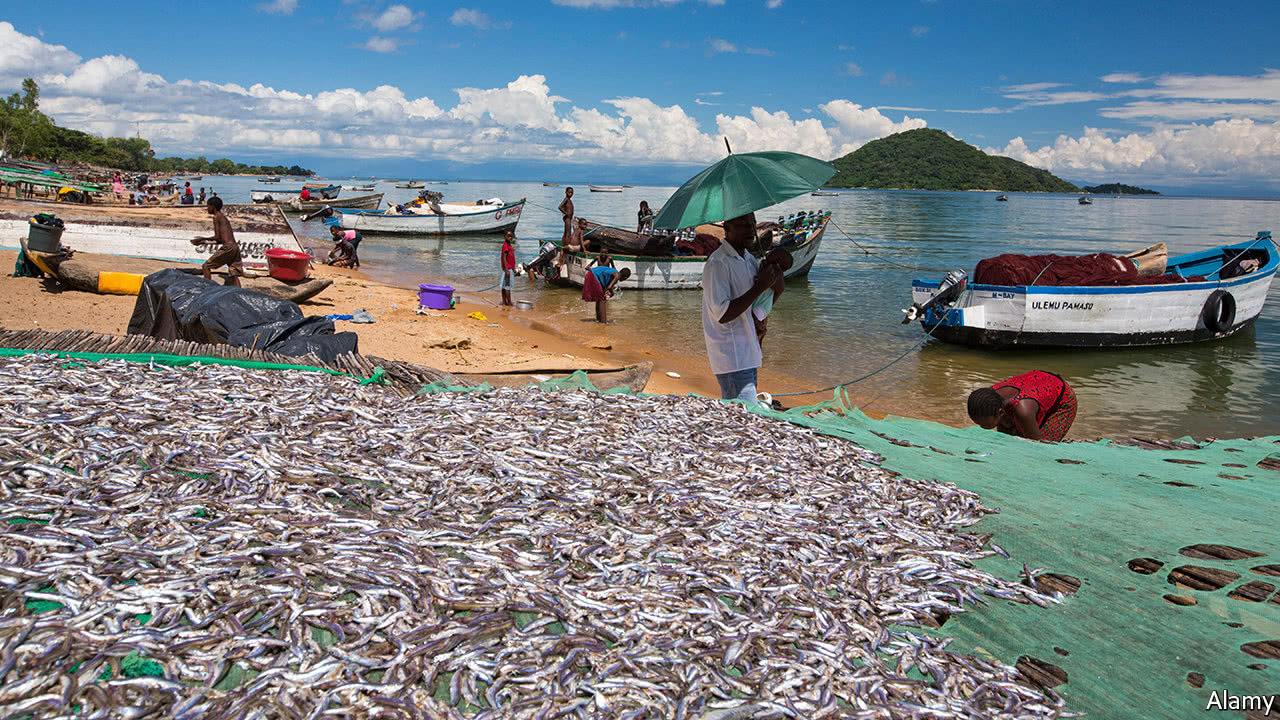
EXPECTATIONS ahead of the World Trade Organisation’s two-yearly ministerial conference, which concluded in Buenos Aires on December 13th, were rock-bottom. A comprehensive new deal to liberalise global commerce has eluded the WTO for more than two decades. This state of affairs looks unlikely to change soon. Optimists nevertheless held out hope for at least one small achievement to come out of Argentina. Surely its members could back an uncontroversial commitment to end subsidies for illicit fishing? Fat chance.
The failure is at once baffling and shameful. Baffling, because countries have already pledged to stop bankrolling illegal, unreported and unregulated fishing by 2020 as part of the UN’s Sustainable Development Goals. The biggest fishing powers—including China, the European Union, America and Japan—appeared to be on board to eliminate subsidies to vessels caught trawling without the right paperwork or in excess of their quotas. And the failure is shameful, because it abdicates responsibility for a common good—global fish stocks—the plundering of which risks dire consequences.
A third of the world’s fisheries are over-exploited, up from one-tenth in the 1970s. Stocks of large fish have dwindled by 90%. Not all of this is the result of illicit activity, estimated to be worth $10bn-23bn a year; the $100bn of fish caught legally contributes to the problem. Even eliminating all subsidies, not just those which finance dodgy activities, will not on its own spare the oceanic commons from tragedy; to achieve that, other controls are necessary, such as more quotas or marine protected areas. But unregulated fishing, almost by definition, takes place where it shouldn’t: in waters already fished to their sustainable limit or, worse, beyond it.
It is hard to say how much of the $20bn a year governments spend on boosting the capacity of their fishing fleets ends up with wrongdoers. (The world’s 17 regional fisheries-management organisations maintain blacklists of vessels caught red-handed, but these are patchy.) If it reflects the illicit share of the global catch, the subsidy would total $1.8bn-3.7bn. By encouraging overcapacity, the handouts imperil the long-term health of national fish stocks, and with them the livelihoods of law-abiding fishermen, and the well-being of the 3bn people who rely on seafood for a fifth of their protein.
Fish or foul?
Scotching these subsidies is therefore a win for everyone (bar the offending crews). It would benefit developing countries in particular; they splurge less on subsidies than rich ones do, and so have more to gain from a level playing-field. Yet this debacle can be traced to India. At $400m a year, India’s total fishing subsidies are a fraction of the $36bn the country spends on state aid. Its pretext for killing the agreement—that it could hurt millions of littoral poor—sounds disingenuous: 83% of Indian handouts go to industrial trawlers. In fact, blame a tussle between the Indian WTO delegation, which wanted restrictions lifted on its government’s ability to stockpile food, and the Americans, who refused to give way. Fish were the unfortunate bycatch.
Fed up with all the bickering, and bereft of American leadership, many countries may want to abandon the WTO process entirely. That would be a mistake. Unlike toothless UN pledges, the WTO’s enforcement mechanism still has legal bite (even if it faces threats of its own). This matters on issues which, like salvaging fish stocks, require action that is both global and urgent. Before leaving Buenos Aires, ministers said they would return to fishing subsidies at their next pow-wow two years from now. They should not wait. Being unable to agree on a ban on illicit subsidies was bad enough. Leaving the problem to fester is even worse.







